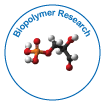Nosso grupo organiza mais de 3.000 Séries de conferências Eventos todos os anos nos EUA, Europa e outros países. Ásia com o apoio de mais 1.000 Sociedades e publica mais de 700 Acesso aberto Periódicos que contém mais de 50.000 personalidades eminentes, cientistas de renome como membros do conselho editorial.
Periódicos de acesso aberto ganhando mais leitores e citações
700 periódicos e 15 milhões de leitores Cada periódico está obtendo mais de 25.000 leitores
Indexado em
- Publons
Links Úteis
Diários de acesso aberto
Compartilhe esta página
Abstrato
Clinical, Imaging and Pathological Characteristics of Brain Implanted Polylactic Co-Glycolic Acid Polymers Conjugated with Temozolomide
Jill Hicks, Simon Platt R, Shannon Holmes P, Elizabeth Howerth, Allison Haley, Jared Kaplan M and Edward Kaplan J
Definitive treatments for primary brain tumours are still sought. Slow- release local chemotherapy may provide a good effect and poly (lactide-co-glycolide) (PLGA) micro cylinders could allow this. We evaluated the neurological and histopathological consequences, and MRI visibility, of PLGA micro cylinders conjugated with Temozolomide and gadolinium implanted in normal canine brains. Eight purpose-bred beagles had cerebral implantation of micro cylinders combined with Temozolomide and gadolinium. MRI was performed following implantation and 28d later prior to necropsy and brain histopathology. All adverse events were associated with implantation and resolved. Dogs with six micro cylinders at 0 and 6.25% gadolinium had mild inflammation and all other dogs had greater brain inflammation, which increased with higher gadolinium concentrations and micro cylinder number. Micro cylinders with gadolinium were identifiable on MRI. Brain implantation of PLGA micro cylinders conjugated with gadolinium and Temozolomide is tolerated in healthy beagles. The lowest gadolinium percentage and micro cylinder number should be used if this therapy is pursued
Diários por Assunto
- Agro e Aquicultura
- Alimentação e Nutrição
- Bioquímica
- Ciência da Computação
- Ciência de materiais
- Ciencias ambientais
- Ciências Clínicas
- Ciências Farmacêuticas
- Ciências gerais
- Ciências Médicas
- Ciências Sociais e Políticas
- Ciências veterinarias
- Economia e Contabilidade
- Enfermagem e cuidados de saúde
- Engenharia
- Engenheiro químico
- Física
- Genética e Biologia Molecular
- Geologia e Ciências da Terra
- Gestão de negócios
- Imunologia e Microbiologia
- Informática
- Matemática
- Química
Revistas clínicas e médicas
- Anestesiologia
- Assistência médica
- Biologia molecular
- Cardiologia
- Cirurgia
- Dermatologia
- Diabetes e Endocrinologia
- Doenças infecciosas
- Enfermagem
- Fisioterapia e Reabilitação
- Gastroenterologia
- Genética
- Hematologia
- Imunologia
- Medicamento
- Medicina Reprodutiva
- Microbiologia
- Nefrologia
- Neurologia
- Odontologia
- Oftalmologia
- Oncologia
- Ortopedia
- Pediatria
- Pesquisa Clinica
- Pneumologia
- Psiquiatria
- Toxicologia

 English
English  Spanish
Spanish  Chinese
Chinese  Russian
Russian  German
German  French
French  Japanese
Japanese  Hindi
Hindi